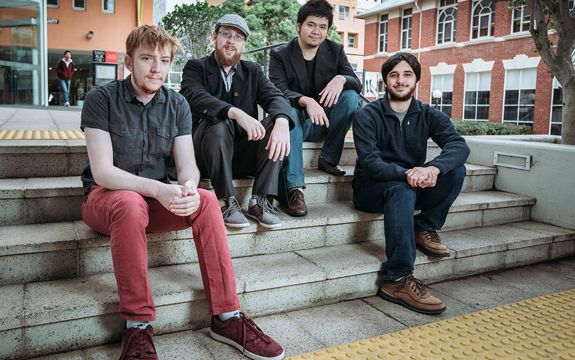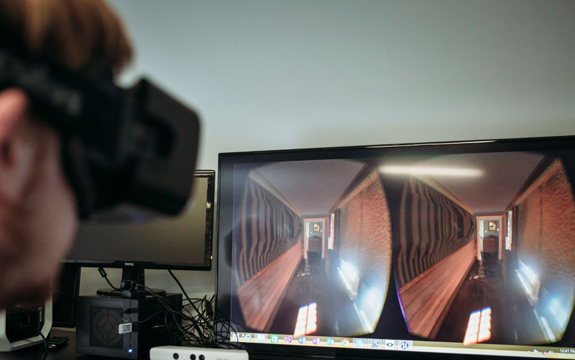Virtual Dementia Experience allows users to see through the eyes of people with dementia

In Summary
A virtual reality tool that allows dementia carers to understand more about how people with dementia see the world has scored a global win in Microsoft’s Imagine Cup.
A team of four Swinburne Multimedia graduates, who now operate as Opaque Multimedia, won US $50,000 as part of the World Citizenship Award to continue developing their software.
The group, which includes Liam McGuire, James Bonner, Chris Mackenzie and Norman Wang, beat teams around the world after they were able to demonstrate how their Virtual Dementia Experience (VDE) can simulate the effects of ageing and dementia.
VDE combines software including Oculus Rift and Microsoft Kinect and has already helped educated thousands of carers and families of people with dementia to understand what the world as experienced from the perspective of someone living with dementia.

Swinburne multimedia graduate, Norman Wang, said that the idea came about after Alzheimer’s Australia approached Swinburne in 2013, asking students to help them solve the issue of educating empathy, a key barrier in improving the quality of dementia care.
“We found out that people didn’t understand what life was like for patients with dementia, which made it hard to maintain relationships and care for them,” Mr Wang said.
“We truly believe that gaming is the best educator, because it allows you to experience something firsthand. Using virtual technology and gaming, we were able to help improve people’s empathy.”
The virtual reality tool is now being developed using technologies including Google Cardboard, which would eventually see the software available to all smartphone users, for as little as $10.
The Microsoft Imagine Cup was held in Seattle and judged by Hololens inventor Alex Kipman, Minecraft lead developer Jens Bergensten and Thomas Middleditch, an actor from TV show Silicon Valley.

